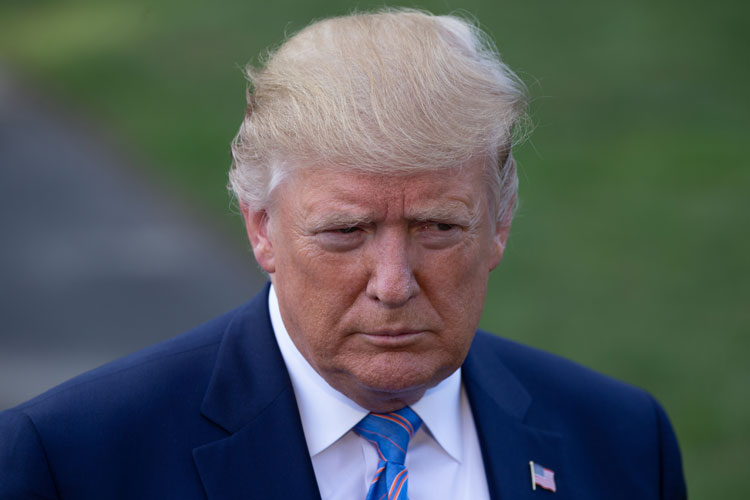Study finds 'Trump-era uptick' in partisan voting by en banc courts

Former President Donald Trump. Photo by Aaron Schwartz/Shutterstock.com.
En banc appeals courts are increasingly dividing along partisan lines, according to a study by two law professors at the William & Mary Law School.
The study cites a “Trump-era uptick” in en banc decisions in which appellate judges vote in blocs largely aligned by the party of the president who appointed them, the New York Times reports.
The study by law professors Neal Devins and Allison Orr Larsen tracked decisions by full appeals courts for three-year periods, spaced 10 years apart, during the last six decades. The researchers also tracked decisions from 2019 to 2020 for a closer look at the Trump era. The researchers scrutinized 950 opinions in total.
The study found that almost 35% of en banc decisions in 2018 through 2020 involved either a partisan reversal or partisan split.
The study defines a partisan reversal as an instance in which a circuit dominated by appointments from one party reverses a panel composed of judges appointed by the other party. A partisan split is defined as an en banc decision in which judges are divided almost entirely based on the party of the president who appointed them.
Partisan decisions made their first real appearance in the 1980s, but partisan alignment was only occasional through much of the 2010s, Devins and Larsen said. The previous high-water mark for partisan splits and reversals by en banc courts was 25% in 1986 to 1988. The percentage was 20% in 1996 to 1998, 19% in 2006 to 2008, and 16.5% in 2016 to 2017.
“From the 1960s through 2017, en banc review seems to have developed some sort of immunity from partisan behavior over time,” Devins and Larsen wrote in a summary of their article. “But that important and long-lasting immunity could now be in danger.”
The article is set to be published in the New York University Law Review.
Devins told the New York Times that the finding on the uptick in partisanship could be an anomaly.
“We just have a worrisome development,” he said. “We just don’t know yet whether this is the beginning of the end or whether instead that it’s just a blip associated with stuff related to Trump.”
Partisan divisions on en banc courts run counter to the core notion of an independent judiciary and reinforce the idea that there are “Trump judges” or “Obama judges,” the authors said in the law review article.
“The costs of en banc review devolving into straightforward partisan politics are great—so great that there is reason to question the continuing use of en banc review if the Trump-era pattern persists,” they wrote.
Hat tip to How Appealing.



